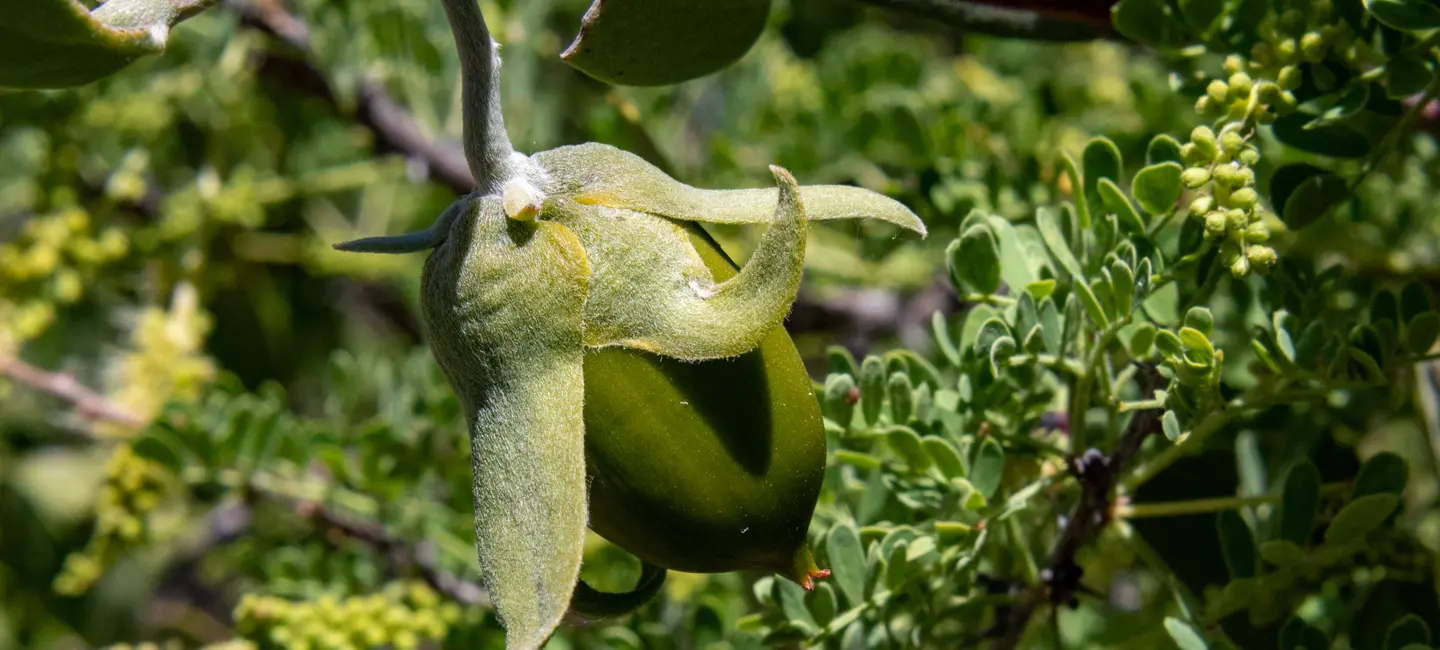
Jojoba is a shrub that is grows in dry regions of northern Mexico and the southwestern US. Jojoba oil and wax are produced from the seeds and used for medicine.
Jojoba is applied directly to the skin for acne, psoriasis, sunburn, and chapped skin. It is also used topically to encourage the regrowth of hair in people who are balding.
In manufacturing, jojoba is used as an ingredient in shampoo; lipstick; makeup; cleansing products; and in face, hand, and body lotions.
Is It Effective?
NatMed Pro rates effectiveness based on scientific evidence according to the following scale: Effective, Likely Effective, Possibly Effective, Possibly Ineffective, Likely Ineffective, Ineffective, and Insufficient Evidence to Rate.
- Alzheimer disease. Massaging the hand with jojoba oil does not seem to improve emotions, aggression, or mental function in people with Alzheimer disease.
- Acne. Applying a clay mask containing jojoba oil to the face 2-3 times per week for 6 weeks might reduce the number of pimples in some people with acne.
- Mosquito repellant.
- Psoriasis.
- Sunburn.
- Chapped skin.
- Hair loss.
- Other conditions.
More evidence is needed to rate the effectiveness of jojoba for these uses.
Is it Safe?
Jojoba, when applied to the skin, is an emollient, which soothes skin and unclogs hair follicles. There is an interest in using jojoba for balding because some people think that unclogged hair follicles are more likely to produce new hair.
Jojoba is LIKELY SAFE for most people when applied to the skin. It can cause some side effects such as rash and allergic reactions.
Jojoba is LIKELY UNSAFE for anyone when taken by mouth. Jojoba contains a chemical called erucic acid, which can cause serious side effects such as heart damage.
Special Precautions & Warnings:
Pregnancy and breast-feeding: Applying jojoba to the skin during pregnancy and breast-feeding is LIKELY SAFE. But it is LIKELY UNSAFE to take jojoba by mouth.
It is not known if Jojoba interacts with any medicines. Before taking Jojoba, talk with your healthcare professional if you take any medications.
There are no known interactions with herbs and supplements.
There are no known interactions with foods.
The appropriate dose of jojoba depends on several factors such as the user's age, health, and several other conditions. At this time there is not enough scientific information to determine an appropriate range of doses for jojoba. Keep in mind that natural products are not always necessarily safe and dosages can be important. Be sure to follow relevant directions on product labels and consult your pharmacist or physician or other healthcare professional before using.
Buxus chinensis, Deernut, Goatnut, Huile de Jojoba, Jojoba Oil, Pignut, Simmondsia californica, Simmondsia chinensis.
Information on this website is for informational use only and is not intended to replace professional medical advice, diagnosis, or treatment. While evidence-based, it is not guaranteed to be error-free and is not intended to meet any particular user’s needs or requirements or to cover all possible uses, safety concerns, interactions, outcomes, or adverse effects. Always check with your doctor or other medical professional before making healthcare decisions (including taking any medication) and do not delay or disregard seeking medical advice or treatment based on any information displayed on this website.
© TRC Healthcare 2024. All rights reserved. Use and/or distribution is permitted only pursuant to a valid license or other permission from TRC Healthcare.
